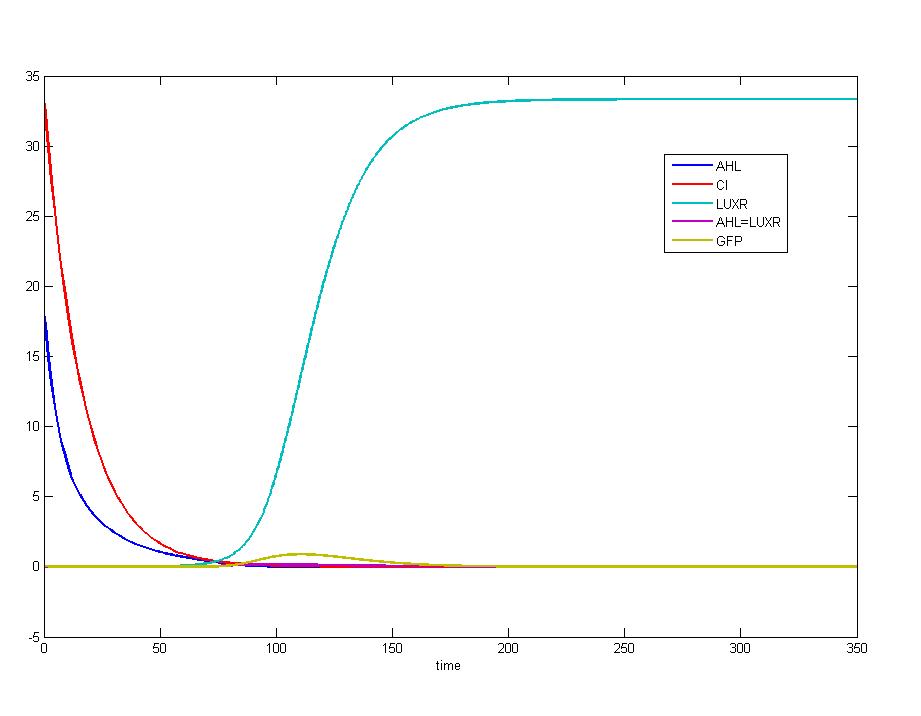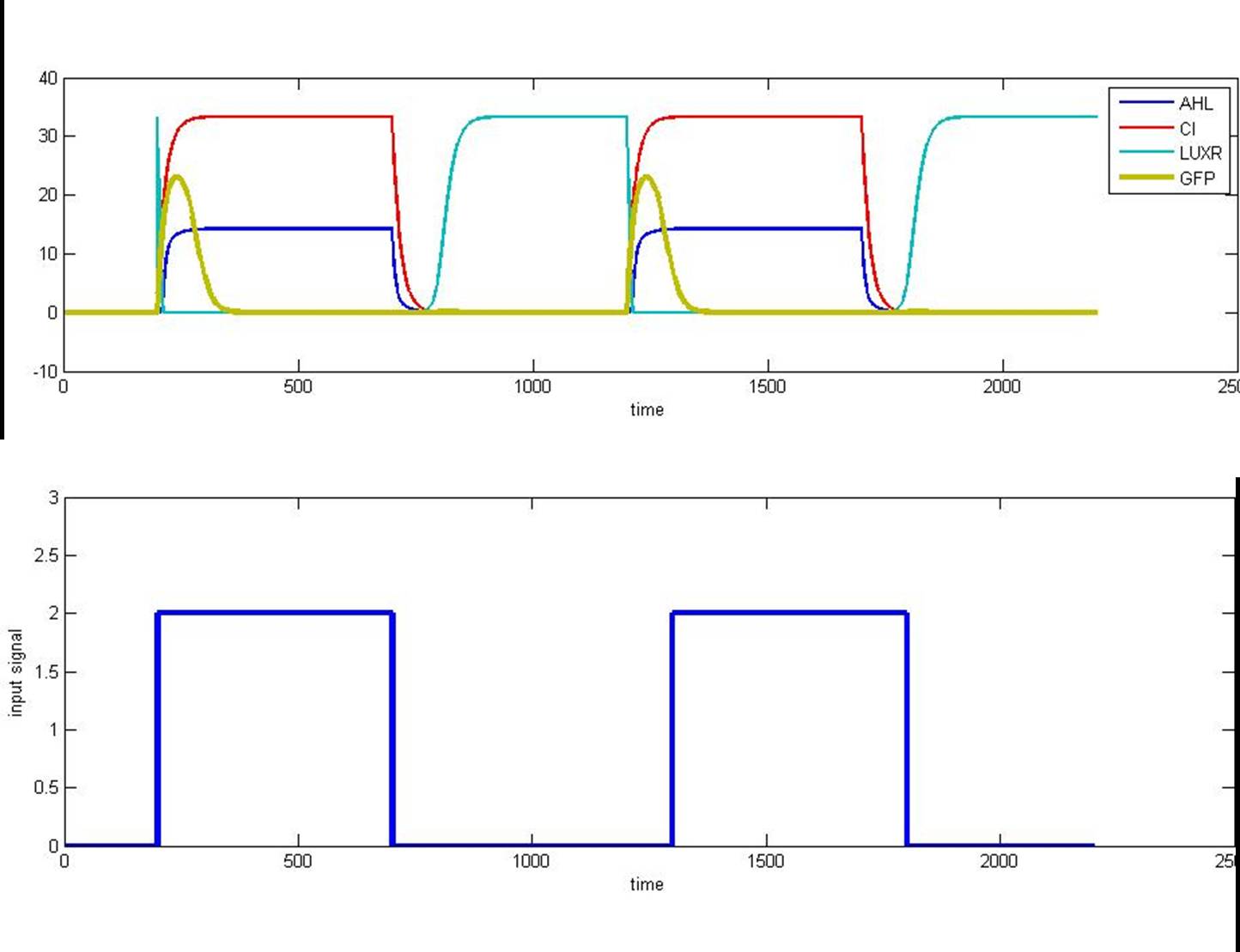Tianjin/FLIP-FLOP/Model2
From 2007.igem.org
Sunlovedie (Talk | contribs) |
|||
| (4 intermediate revisions not shown) | |||
| Line 1: | Line 1: | ||
{| | {| | ||
| - | [[Image:TJUMODELFF201.jpg|TJUMODELFF201.jpg|400px]]< | + | |- |
| - | [[Image:TJUMODELFF202.jpg|TJUMODELFF202.jpg|400px]]< | + | |width="960px" style="padding: 10px; background-color: #FFFF99" | |
| - | + | Supposing that the degradation rate of AHL increases to three times faster than the original one, | |
| - | + | we simulate the changing tendency of contents of various parameters on our computer. The output | |
| - | + | signal would only appear when the input signal switches from 0 to 1. The reason is that with the addition | |
| + | of IPTG, AHL are produced very quickly which bind to undegraded LuxR protein to initialize the production of | ||
| + | GFP. But with the ceasing of IPTG, AHL are decomposed in a very short time leaving little AHL to bind LuxR protein and only a low peak of GFP could | ||
| + | be observed as the left graph displays. | ||
| + | <table width="99%" cellpadding="0" cellspacing="10" style="padding: 10px; background-color: #FFFF99"> | ||
| + | <tr> | ||
| + | <td><center>[[Image:TJUMODELFF201.jpg|TJUMODELFF201.jpg|400px]]</center></td> | ||
| + | <td><center>[[Image:TJUMODELFF202.jpg|TJUMODELFF202.jpg|400px]]</center></td> | ||
| + | </tr></table> | ||
|} | |} | ||

